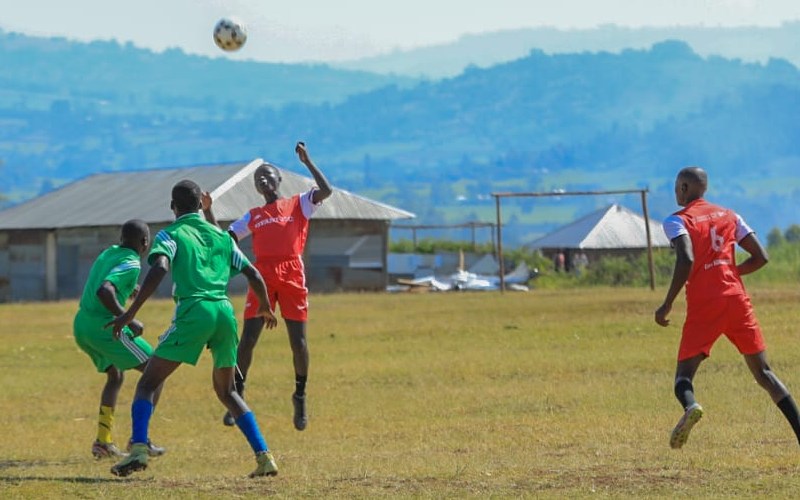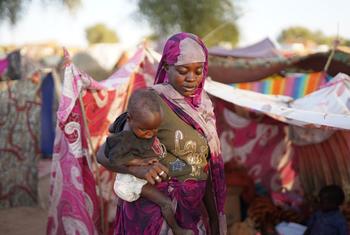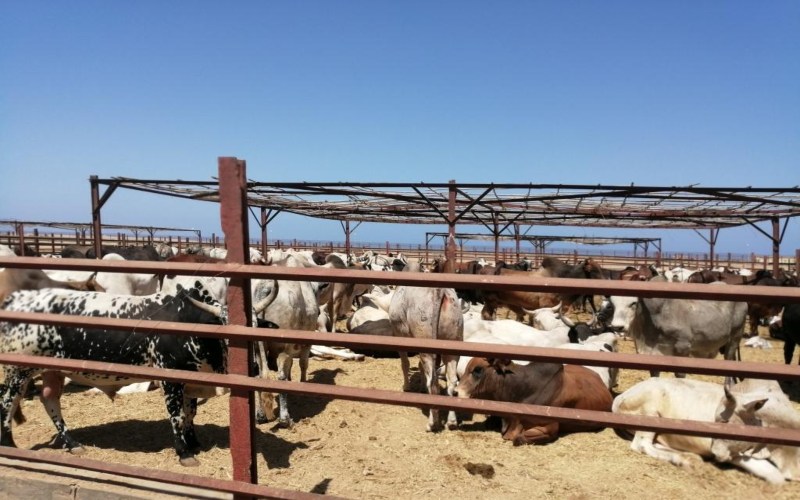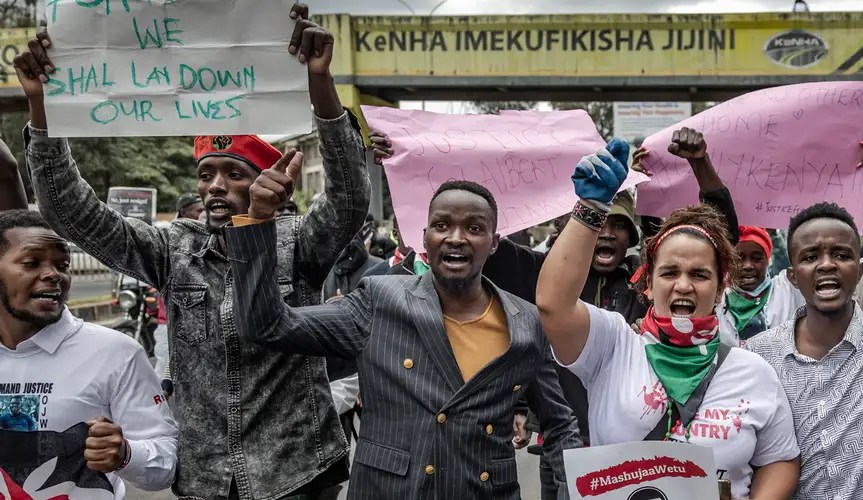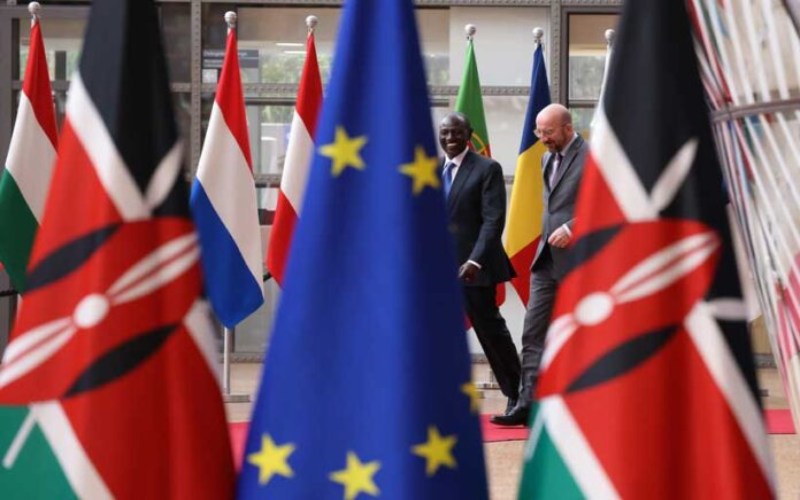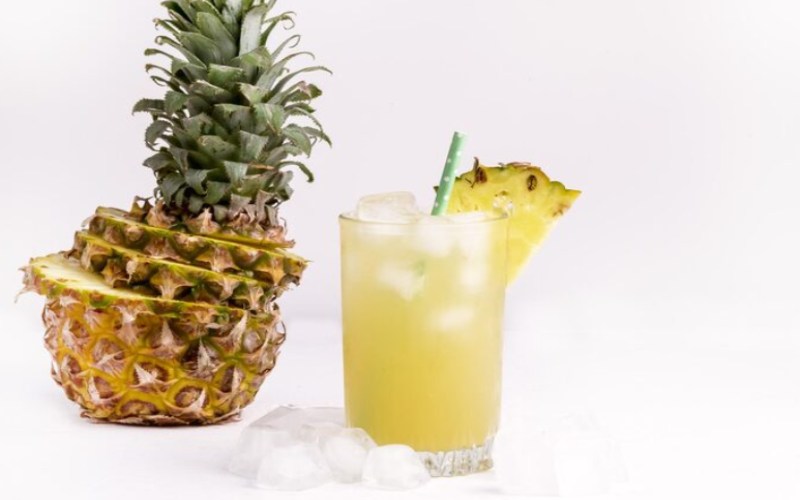How youth group is improving cashew nut production in Kwale County
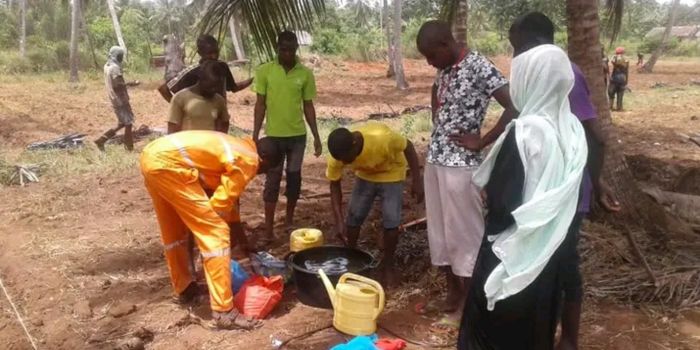
Asked why they selected cashew nuts and not any other trees, they noted they are resistant to climate change, and that their demand is high both locally and internationally.
As their peers searched for employment opportunities, Juma Mrinzi and his six friends decided to create jobs for themselves, improving cashew nut production in Kwale County.
The six men and one woman from Dovi, Msambweni Sub-county, took to propagating cashew nut seedlings and then selling them to local farmers.
More To Read
Juma's friends are Mohammed Ali, Rahma Bakari, Ayubu Mwakilingo, Hamisi Masudi, Rajabu Simba, and Anwari Matano. They have the common goal of making a name for themselves in agriculture.
Asked why they selected cashew nuts and not any other trees, they noted they are resistant to climate change, and that their demand is high both locally and internationally.
"The cashew nuts available in this region are very old and their production is limited, thus, the market demand is not met, so we seek to grow cashew nuts that will produce a high-quality yield," Juma told The Eastleigh Voice in an interview on May 18.
 Hamisi Masudi sorts cashew nut seeds for planting on their farm in the Dovi area of Msambweni Sub-county in Kwale on May 18, 2024. (Photo: Mishi Gongo)
Hamisi Masudi sorts cashew nut seeds for planting on their farm in the Dovi area of Msambweni Sub-county in Kwale on May 18, 2024. (Photo: Mishi Gongo)
The youth, who are Form Four leavers, said they plan to enrol themselves in technical institutions to pursue agriculture since it is their passion.
Rahma said that when they started the work four years ago, her father gave them a piece of land to use, but after two years, they managed to purchase the three-hectare piece from him.
She explained that each one of them has a duty.
"I am in charge of money and logistics. One person handles the customers, another ensures we have a good supply of cashew nuts, and another handles our social media pages," she said.
The others are in charge of marketing, the nurseries, and seedling inspection, to ensure they are in good condition and get the right amount of water at the right time.
The group said they start by sourcing cashew nuts and then sorting them to eliminate the bad ones.
They then put them in a basin full of water and sort them even further, throwing away the floating ones, as this is a sign of their poor state.
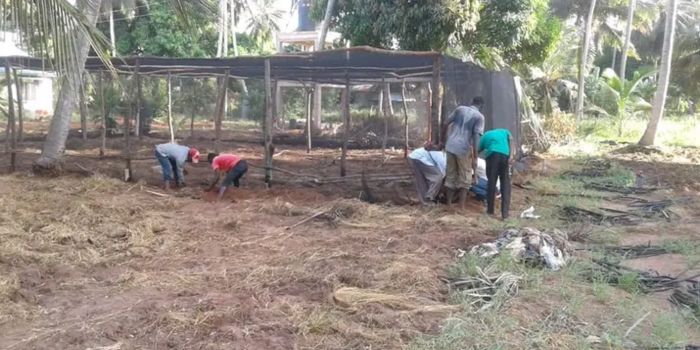 The seven youth prepare a shade net for cashew nut seedlings, to help with regulating sunlight, on their farm in the Dovi area of Msambweni Sub-county in Kwale on May 18, 2024. (Photo: Mishi Gongo)
The seven youth prepare a shade net for cashew nut seedlings, to help with regulating sunlight, on their farm in the Dovi area of Msambweni Sub-county in Kwale on May 18, 2024. (Photo: Mishi Gongo)
Explaining the grafting process, Rajab said he collects regular cashew nuts and plants them. When the seedlings are about four weeks old, he obtains a scion from a mature cashew nut tree.
"I then cut the root stalk using a sharp knife and make a sharp end on the scion. After that, I use polythene paper to tighten the area to prevent water from getting into the wound, then cover it completely with another piece of paper and leave it for 21 days," he said.
He starts selling the seedlings when they are three months old.
Rajab noted that a grafted cashew nut takes only two years to produce, unlike the normal ones that take five to 10 years. They sell a grafted seedling for Sh200
The group also sells cashew nuts to individuals and businesses for value addition and has at least 15,000 cashew nut seedlings for sale.
On a good day, the youths make up to Sh10,000 from selling their seedlings.
They cited the unavailability of capital and water as the major challenges they encountered while starting the business. They now generate a good income and plough profits back into the business, and harvest rainwater.
Their message to other youths in Kwale is to use their family farms to earn a living and avoid political chaos.
Top Stories Today

